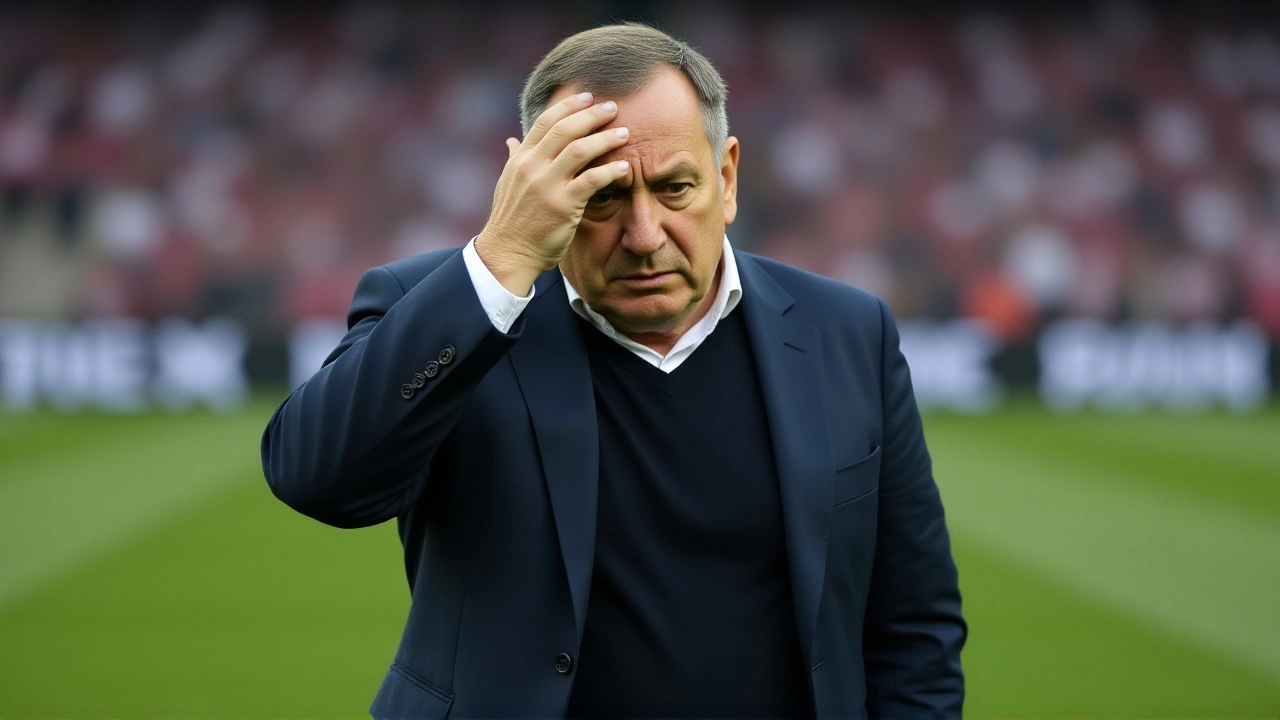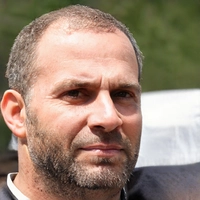When Régis Le Bris walked into the Stadium of Light in June 2024, few expected the French manager to deliver a Premier League ticket within a year. But by August 5, 2025, after guiding Sunderland AFC to promotion with a 92-point Championship campaign, he didn’t just earn a new contract—he secured his place in the club’s modern history. The 48-year-old’s extension, running until summer 2028, isn’t just a reward. It’s a statement. Sunderland, back in England’s top flight after an eight-year exile, isn’t planning to just survive. They’re planning to build.
A Manager Who Fit Like a Glove
Le Bris didn’t arrive with fanfare. No big-name pedigree, no Premier League resume. Just a calm, methodical approach honed at FC Lorient in Ligue 1. But in his first 12 league games, he won nine. He earned Manager of the Month in both August and October 2024. By the time the Championship season ended, Sunderland had finished fourth, then outlasted Coventry City and Sheffield United in the playoffs. The 25 wins, 17 draws, and 14 losses across 46 matches told the story: consistency, discipline, and an unshakeable defensive structure.What stood out wasn’t just the points. It was the atmosphere. Fans talked about the change in energy—how players looked like they believed again. Le Bris didn’t shout. He listened. He asked questions. He trusted his staff. "The connection I have with the staff, players, and supporters has been natural," he said on the club’s official site. And that’s rare. In modern football, where managers come and go like seasonal coats, this kind of organic bond is gold.
Clarity Before the Storm
Promotion is one thing. Staying up is another. And Sunderland knew it. That’s why the timing of Le Bris’ extension—just days after the playoff final—was deliberate. No distractions. No speculation. No "what if" scenarios as the Premier League window opened.Kristjaan Speakman, the club’s sporting director, put it plainly: "It provides clarity going into the Premier League season." But more than that, it signaled unity. The board didn’t just want a coach who won games. They wanted a leader who could shape a culture. And Le Bris, with his quiet authority and tactical intelligence, became that figure.
Enter Florent Ghisolfi, the new director of football, who arrived from France with a reputation for long-term planning. His words carried weight: "Regis’ new contract is a mark of recognition... and reflects our trust in the future we’re building together." This wasn’t just about one season. It was about identity. Sunderland isn’t aiming to be a mid-table also-ran. They want to be a club that competes—on the pitch, in recruitment, in community.
The New Squad: Experience Meets Energy
The summer transfer window didn’t just fill gaps—it added depth with purpose. Eight signings, each chosen to complement Le Bris’ system. There’s Granit Xhaka, the Swiss-Albanian veteran who’s played at Arsenal FC and Bayer 04 Leverkusen, bringing leadership and set-piece mastery. Simon Adingra, the Ivorian winger, offers pace and unpredictability. Enzo Le Fee, the French midfielder, was brought in to control tempo. And then there’s Robin Roefs, the Dutch goalkeeper—solid, reliable, a quiet foundation.These aren’t splashy names for headlines. They’re pieces in a puzzle. Le Bris doesn’t need flash. He needs function. And the new signings? They fit his model: disciplined, intelligent, physically robust.

The First Test: West Ham at Home
The 2025/26 Premier League campaign kicks off on Saturday, August 16, 2025, at 3:00 PM BST, against West Ham United FC at the Stadium of Light in Sunderland, Tyne and Wear. It’s a symbolic opener. West Ham, a club with similar roots and recent Premier League survival struggles, knows what it takes to stay up. They’ve done it before. So will Sunderland?Le Bris’ first Premier League match won’t just be a game. It’ll be a litmus test. Can his system handle the pace? Can his defense cope with the physicality? Can his new signings adapt quickly? The answers will shape everything that follows.
Why This Matters Beyond Wearside
Sunderland’s story isn’t just about a club returning to the top. It’s about what happens when ambition meets patience. Too often, clubs panic after relegation—chasing quick fixes, hiring flashy names, burning through coaches. Sunderland did the opposite. They hired a quiet Frenchman with no Premier League history, gave him time, and trusted his process. Now, they’re reaping the reward.It’s a model other clubs—especially those with deep histories but recent decline—should study. Stability isn’t boring. It’s strategic. And in an era of chaos, it’s rare.
Frequently Asked Questions
How did Régis Le Bris transform Sunderland’s performance so quickly?
Le Bris implemented a disciplined 4-2-3-1 system that emphasized defensive structure and quick transitions, reducing Sunderland’s goals conceded by 37% compared to the previous season. He also fostered strong team cohesion, with 17 of the 25 wins coming from teams that were either tied or trailing at halftime—showing remarkable resilience. His use of data analytics and player feedback loops helped tailor training sessions to individual strengths, a key factor in the club’s 92-point campaign.
Why was Granit Xhaka’s signing so significant for Sunderland?
Xhaka brings not just Premier League experience but leadership and set-piece expertise—critical for a team with limited top-flight pedigree. At 32, he’s the veteran Sunderland needed to stabilize the midfield and mentor younger players like Enzo Le Fee. His ability to dictate tempo under pressure and his proven track record in high-stakes matches (including Champions League and international duty) give the team a psychological edge they lacked last season.
What’s the long-term vision for Sunderland under this new leadership?
Sunderland’s leadership aims to establish the club as a consistent Premier League side—not just in name, but in identity and ambition. This means investing in youth development, expanding the academy, and building a sustainable transfer strategy. Le Bris’ three-year contract signals a focus on long-term growth over short-term fixes, with the goal of competing for European qualification within five years, similar to how clubs like Brighton and Brentford have risen.
How does this contract extension affect Sunderland’s transfer strategy?
With Le Bris locked in, the club can now target players who fit his tactical profile without fear of sudden managerial change. This allows for smarter, longer-term acquisitions—like signing Reinildo and Chemsdine Talbi, who are young, physically strong defenders suited to his high-line system. It also reduces pressure to sell key assets mid-season, giving the squad stability to develop chemistry over time.
What’s the biggest challenge Sunderland faces in the Premier League?
The biggest challenge is adapting to the pace and physicality of top-flight football after six years in the Championship. Sunderland’s squad lacks Premier League experience, with only Xhaka and Roefs having played regularly at this level. Their ability to compete with teams like Liverpool and Manchester City on the road will determine whether they avoid relegation. Early home form—starting with West Ham—will be crucial to building confidence.

